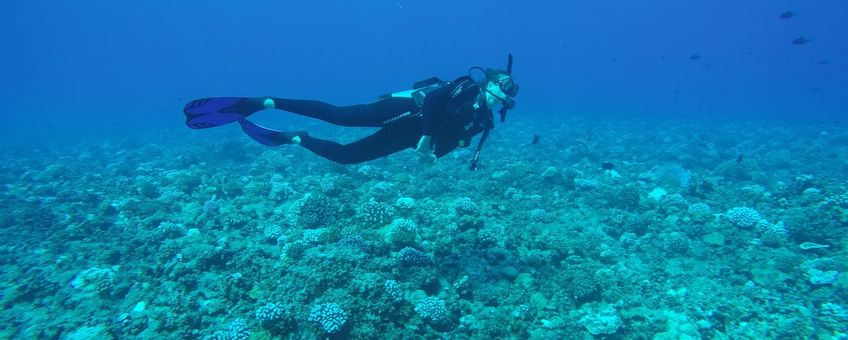
Warming ocean turns coral environment upside down
NIOZ Royal Netherlands Institute for Sea ResearchFor her research, Arts and colleagues obtained small pieces of both healthy and bleached coral of three different species, from a reef near Moorea, in the archipelago of French Polynesia. Large-scale coral bleaching occurred there in 2019. In the laboratory, the researchers then exposed both coral types to either the normal average temperatures of the South Pacific (28,6 °C) or slightly elevated water temperatures (32 °C). Together with American colleagues, Arts publishes about this work in the latest issue of Nature Communications Biology.
Changing bacterial community
Compared to the healthy coral at the normal temperature, the warmed coral released more organic matter into the water. These substances were also markedly different in composition. The effect was strongest in the coral that was healthy at the start and slowly faded during the experiment. In addition, the researchers saw a similar but slightly more modest effect in corals that had already faded.
The altered mix of organic molecules then also changed the composition of the bacterial community in the water around the coral, Arts and colleagues observed. "That bacterial community changed to the type we see around an algal reef, not like what we normally see around a coral reef," she said.

Better analysis
Research into the effects of warming ocean water has focused mainly on the coral itself, so far. The effects on the surrounding water are still largely unknown, says Arts: "It is thanks to increasingly better analysis techniques that we can now also look at the composition of the organic molecules in the water. And then it turns out that both that organic matter, and the complete microbiome of the water around warmed coral changes substantially." What effect this changing water quality may have on corals is still unknown. "But should not surprise us, when such a strong change in the microbiome in the water will prove to have implications for coral health," Arts states.
From the lab to the sea
This research involved coral under laboratory conditions. "Meanwhile, there are already indications that the composition of organic matter around natural reefs also changes when temperatures rise," Arts notes. Further research will have to clarify exactly which organic molecules are ‘eaten’ by bacteria in the water around a reef and exactly how the different bacteria affect the health of the reef.

Text: NIOZ
Photos: Irina Köster; NIOZ

